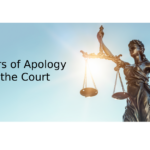Another High-Speed Pursuit for Minor Offence Ends in Disaster

NSW Police Minister Tony Grant continues to deny there is a problem with our state’s current pursuit policy, after a 15-year-old boy sustained serious head injuries as a result of a high-speed police chase.
The boy crashed into an oncoming vehicle after a police patrol car started pursuing him for riding an unregistered trail bike in Seven Hills last week.
This is the latest of several disturbing incidents involving police chases in recent years –incidents which have prompted several jurisdictions to change their police pursuit policies.
In February of this year, three women died when their car struck a pole during a high-speed pursuit in Sydney’s West. Police started that chase because the car did not have its lights on.
Dangerous to the Public and Police
Greens MP David Shoebridge has criticised our state’s policy of pursuing vehicles for “minor traffic infringement[s].”
He expressed the view that NSW police “are addicted to high-speed police chases and I think it’s going to require intervention from the Minister to fix it.”
Like many others, Shoebridge believes the risks of high-speed chases outweigh the benefits in the context of pursuing drivers for minor traffic offences, pointing-out that those drivers can normally be apprehended at a later time.
Other Parts of Australia
Recognising the dangers of high-speed pursuits, other Australian states and territories have progressively implemented policy changes.
High-speed pursuits were banned in Victoria last year, with the exception of cases involving a serious risk to public safety, or a crime which involved serious injury.
Queensland also implemented a ‘no pursuits policy’ last year, after an inquiry found that the risk to public and police safety outweighed the potential benefits.
Western Australian police have been directed not to engage in high-speed pursuits since 2011, and Tasmania is currently eliminating pursuits that are not necessary to protect public safety.
Extent, Basis and Consequences of Pursuits in NSW
Road safety expert John Lambert highlights the fact that NSW “… pursues at the highest rate of any jurisdiction, it’s a very high level of pursuits… over twice the rate in Victoria, nearly three times the rate in Queensland.”
Since 2012, NSW police have been involved in an average of 1600 pursuits every year – 60% of which are responses to alleged traffic offences, such as not complying with stop signs or traffic lights.
A major 2013 study by the Australian Institute of Criminology found that pursuits resulted in a whopping 218 deaths between 2000 and 2011; an average of 18 deaths every year. Of those killed, 136 were alleged offenders or complicit parties, while the remaining 82 were innocent members of the public.
Lack of Action
NSW pursuit policy has not been reviewed for at least the past five years.
This is despite the NSW government repeatedly promising reviews, including after a toddler was tragically struck and killed during a police chase last year.
NSW introduced its Safe Driving Policy in 2009, foreshadowing an initial review in 2010 – a review which never eventuated. Redfern Legal Centre Senior Solicitor David Porter finds the delay unacceptable, saying:
“This is a policy which has the ability to influence whether or not lives are lost, and it is important that that policy be updated to take account of changes in NSW, changes to technology and changes in the organisational priorities of the NSW Police Force”.
Despite the dangers, NSW Police Minister Grant continues to support the current regime, saying reviews are unnecessary because our practice is already of the highest standard.
“Each incident is reviewed, so if there are lessons to be learned out of those individual examples that have followed since 2011 we’ll take them forward and consider them into any changes of policy and procedures,” Grant said.
But with 18 people killed every year – most of them resulting from responses to traffic infringements – many feel it is time for NSW to follow the lead of other jurisdictions and take action to prevent further tragedies.
For more information about the law on police pursuits (‘Skye’s law’), watch our video:
Going to court for a traffic offence?
If you are going to court for a traffic offence, call or email Sydney Criminal Lawyers anytime to arrange a free first consultation with an experienced, specialist traffic lawyer who will accurately advise you of your options, the best way forward, and fight for the optimal outcome in your specific situation.






